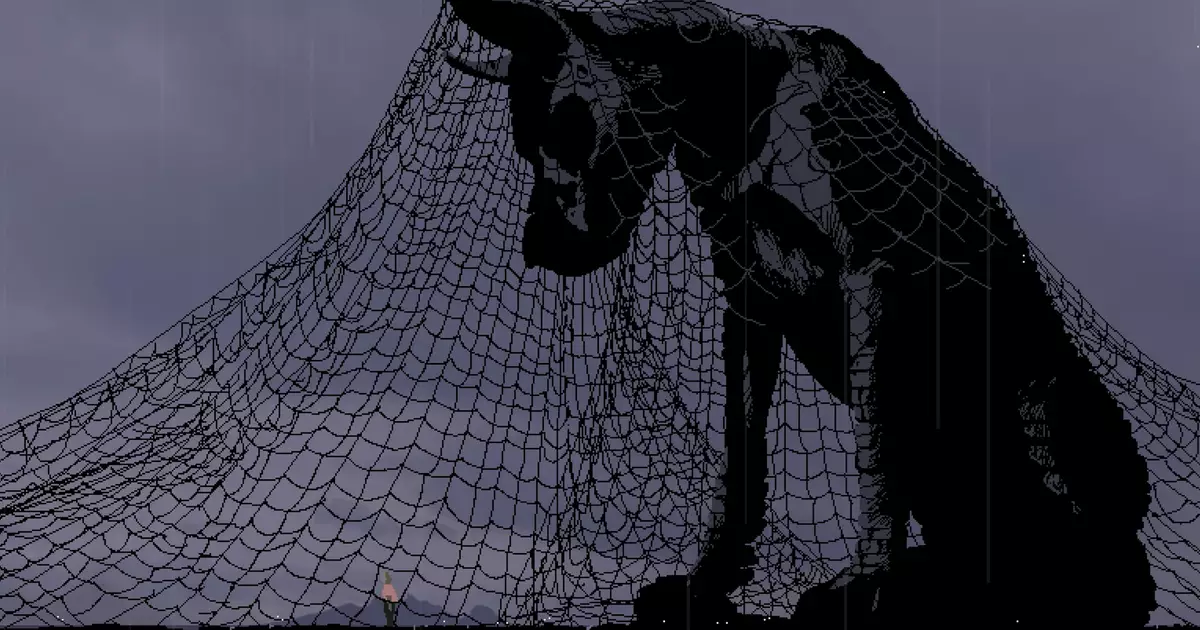The gaming landscape continually evolves, with genres frequently mashed together to create fresh experiences. “Love Eternal” emerges from the collaboration between developers Brlka and publishers Ysbryd Games, skillfully merging the demanding mechanics of precision-platforming with the unsettling themes of psychological horror reminiscent of Silent Hill. The framework of this game revolves around Maya, the central character navigating a world crafted from haunting memories and psychological turmoil, making it a promising entry in both the platforming and horror genres.
At its core, “Love Eternal” tells the story of Maya, who is drawn into a sinister castle populated by a “weird, lonely god.” This narrative is laden with metaphors of isolation and emotional trauma—a setting bound to resonate with players who appreciate deep storytelling in their gaming experiences. Set against a backdrop of unresolved fears and lurking dread, Maya’s journey through this eerie environment feels more than just a quest; it is a confrontation with both her internal and external demons. This profound narrative approach raises the stakes beyond mere gameplay, intertwining existential themes that invite players to reflect on their own emotional landscapes.
Gameplay mechanics offer a dual challenge: players must navigate intricate levels while confronting the psychological horrors that erupt in the environment. More than just avoiding spikes and traps, Maya possesses the unique ability to manipulate gravity—a game-changing skill that adds layers to platforming tactics. Such elements encourage players to think strategically in real time, ensuring a dynamic gaming experience. The incorporation of gravity-defying maneuvers creates a point of allure, holding the promise of moments both exhilarating and terrifying. The challenge, however, arises in balancing skill mastery with the game’s more psychological elements, possibly leading to frustration if players cannot adapt quickly enough.
Visually, “Love Eternal” captivates through its mesmerizing hand-drawn pixel art and complex animation. The meticulous attention to detail immerses players in the god’s unsettling realm, while animations breathe life into the haunting environment. This aesthetic ambition is matched by a soundtrack that oscillates between unsettling and hauntingly beautiful, enhancing the emotional depth of gameplay. It is an experience designed to surround players, pulling them deeper into the world of “Love Eternal,” providing a complete sensory experience that stands out in the indie gaming arena.
Scheduled for release in 2025, the anticipation surrounding “Love Eternal” is palpable, particularly amongst fans of innovative indie titles. As the industry thrives on creativity, the potential synergy between platforming challenges and psychological horror in this game could redefine standards in both genres. Players hungry for unique narratives and intricate mechanics will likely find much to appreciate in this ambitious project. While awaiting its launch, those seeking alternatives may explore contrasting experiences, such as “Stardust Demon,” which exemplify how diverse the indie gaming scene has become. With talents like Brlka and Ysbryd Games shaping the landscape, the future of indie horror-platformers looks promising, providing gamers with bountiful combinations of emotional resonance and gameplay challenge.

